World Geography And Politics Daily News | 03 Jul 2023

Views (141)
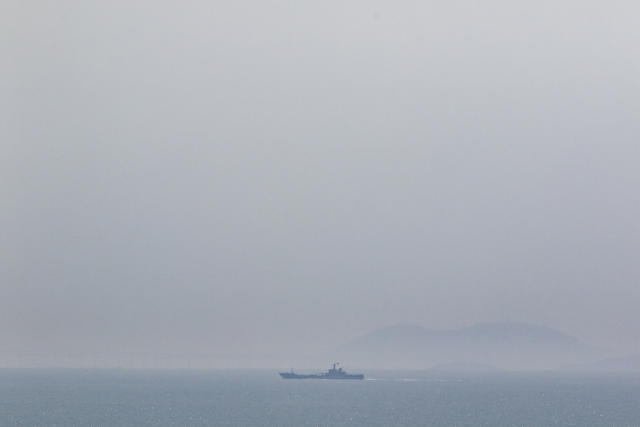
An ailing Thai elephant returns home for medical care after years of neglect in Sri Lanka
An ailing elephant that Thailand had presented to Sri Lanka more than two decades ago returned to his native land for medical treatment Sunday following allegations that the animal was badly abused while living at a Buddhist temple. The male elephant, known in Sri Lanka as Muthu Raja, or Pearly King, and as Sak Surin, or Mighty Surin, in Thailand, was flown directly from the South Asian island nation's capital to Chiang Mai province in northern Thailand on a Russian Ilyushin IL-76 cargo plane. A six-person team, including two veterinarians and four mahouts, or professional elephant trainers, accompanied the elephant on the flight, which took about six hours.
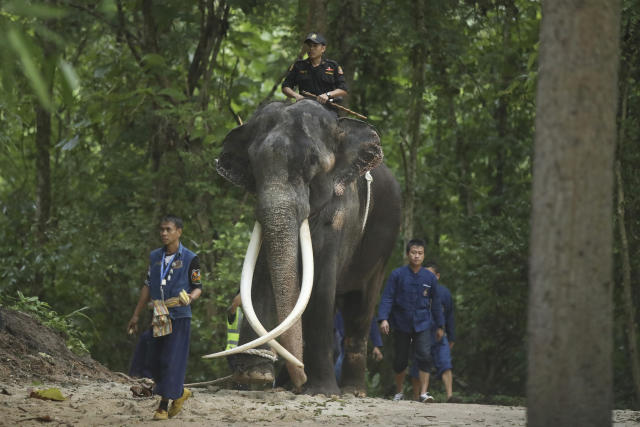
A six-person team, including two veterinarians and four mahouts, or professional elephant trainers, accompanied the elephant on the flight, which took about six hours.
Video footage of his arrival in Chiang Mai showed the elephant conscious and appearing calm.
Thai Environment Minister Varawut Silpa-archa was at the airport and said the elephant landed in perfect condition. He said earlier that Thailand spent at least 19 million baht ($540,000) for the animal's repatriation.
The pachyderm could be heard trumpeting from inside the container that was loaded onto a truck's flatbed trailer to transport him to the government’s Thai Elephant Conservation Center in nearby Lampang province, where he will be quarantined for at least 30 days and stay for rehabilitation.
The elephant was sent to Sri Lanka in 2001 when he was around 10 years old as a gift from the Thai royal family. He was one of three elephants that Thailand gave to Sri Lanka’s government for training as a carrier of religious relics. Mathu Raja was placed in the care of a Buddhist temple.
A Sri Lanka-based animal rights group, Rally for Animal Rights and Environment group, alleged in 2020 that the animal was in bad health due to years of hard labor and abuse, and needed urgent medical care. The group started a petition calling for him to be rescued and later called for the elephant's return to Thailand after the Sri Lankan government allegedly ignored the activists' complaints.
Thailand’s Foreign Affairs Ministry released a statement in November 2022 saying a preliminary investigation was conducted by the Thai Embassy in Sri Lanka concluded that the elephant “was not in good health and was in poor living conditions.” The statement said Thailand would seek Sri Lanka’s approval to bring the elephant back for treatment.
The elephant was reported to be underweight, have rough skin and abscesses on both hips, thinning foot pads, and a stiff left foreleg, making it difficult for him to walk and stand.
He was moved from the Buddhist temple to Sri Lanka’s National Zoological Garden for preliminary treatment and appeared healthier before his flight to Thailand.
Sri Lankan Prime Minister Dinesh Gunawardena told members of Parliament last month that while visiting Thailand in May he had expressed his regret to his Thai counterpart over what had happened to the elephant.
Thai officials have said the main purpose of bringing the animal back was for medical care and whether he returns to Sri Lanka remains a subject to be discussed with the Colombo government.
During a press conference in Bangkok last month, Thai Environment Minister Varawut Silpa-archa said authorities would start surveying the health condition of other Thai elephants in foreign countries. He said exporting Thai elephants was already banned for conservation reasons.
Transgender woman challenges societal norms by applying to compete in Miss Venezuela pageant
Venezuelan’s enthusiasm for beauty pageants is unparalleled, and Miss Venezuela — the crown jewel of them all — may be the only event able to unite the deeply divided country. Once a year, class, race and politics are put aside as the South American nation tunes in to see who will represent Venezuela on the global stage. Behind the cheers and claps for the women vying for the coveted title is a deeply conservative society with little to no tolerance for any defiance of heteronormative standards.

Behind the cheers and claps for the women vying for the coveted title is a deeply conservative society with little to no tolerance for any defiance of heteronormative standards. Sofia Salomón is ready to challenge that.
The influencer and Instagram model has applied to take part in this year’s Miss Venezuela contest. If accepted, she will be the first transgender woman to participate.
“I think it is a great platform to bring visibility to my community, echo the positive things, and show people the reality of transgender women,” Salomón said.
Sunday’s planned Pride march in the capital, Caracas, may draw hundreds of people, but there is almost no acceptance of the LGBTQ+ community nationwide, unlike in some other Latin American nations with conservative, Roman Catholic-based values. And Venezuelans who often idolize the European lifestyle have largely resisted that continent’s wide inclusion of the community and its rejection of homophobia and transphobia.
Venezuela’s top court in May repealed a law that punished consensual same-sex conduct by military personnel, but has been holding off for seven years in deciding a case that aims to give same-sex couples the right to marry.
Nonetheless, Adrian became the country's first transgender lawmaker in 2015, representing a district in Caracas, and in June this year, she entered the opposition's presidential primary race, hoping to oust Maduro.
“In order to see changes in social matters, the state must implement public policies, and in that sense there is undoubtedly a penetration of changes (in other Latin American countries) that you cannot see in Venezuela,” Adrian said. “There is often not even an awareness here that a certain phrase is racist or homophobic or transphobic or misogynistic.”
Last year, Salomón finished in the top six of Miss International Queen, the world’s largest beauty pageant for transgender women. During the event, she mentioned the law Adrian is fighting.
“I would like that law changed so transgender women could be accepted with the name they feel more safe,” she said.
The Miss Venezuela organization did not respond to a request for comment from The Associated Press.
Miss Venezuela winners go on to compete in Miss Universe, and the global contest opened to transgender competitors in 2012. That decision prompted Osmel Sousa, then head of Miss Venezuela, to declare that “the humble, Christian Venezuelan public will never accept that position.”
Marcia Ochoa, an associate professor of feminist, critical race and ethnic studies at UC Santa Cruz, applauded Salomón’s efforts.
“She is doing something that makes a lot of sense for a Venezuelan person,” Ochoa said, insisting that Venezuelan culture has space for an idiosyncratic gender identity: miss. “You can see somebody and say whether or not they are in beauty pageants because they look like a beauty pageant contestant. You can say: ‘es toda una miss.’” The phrase encapsulates a truly Venezuelan compliment, that a perfectly put together woman “is absolutely a Miss (Venezuela).”
Miss Venezuela winners earn instant fame that can lead to positions of influence. The 1981 Miss Universe winner, Irene Sáez, went on to become mayor of a municipality of Caracas, and she ran for president in 1998, losing to Hugo Chávez.
Caracas resident Josefina Mejia has watched Miss Venezuela for decades with family and friends. They pick favorites and have a friendly competition over whose pick will win. Mejia, 65, said she does not oppose Salomón's efforts but would rather see transgender women stay out of the contest.
“This is a conservative society, and sometimes we judge people even though we shouldn’t be judging,” Mejia said. “I would like a separate contest for that gender."
The activist-run Venezuelan Observatory of LGBTIQ+ Violence reported at least 97 cases of violence against members of the community nationwide in 2022, including 11 homicides. The figures are likely an undercount because so many cases are not reported. A formal complaint was filed with authorities in at least 10% of the cases.
Salomón, who is interested in a career in real estate, received a confirmation email that the Miss Venezuela organization had received her application but she still doesn't know if she has been accepted. She said she thinks her modeling and pageant experience gives her an advantage over other contestants.
“I am of the opinion that experience is not improvised,” Salomón said. “That is why people trust that I will make history in the country.”
America’s front line of missile defense is straining under the demand of global threats
The US Army’s air defense units are among the most overworked in the US military, manning missile systems across the globe to provide around-the-clock deterrence against adversaries including North Korea, China, Iran and Russia.
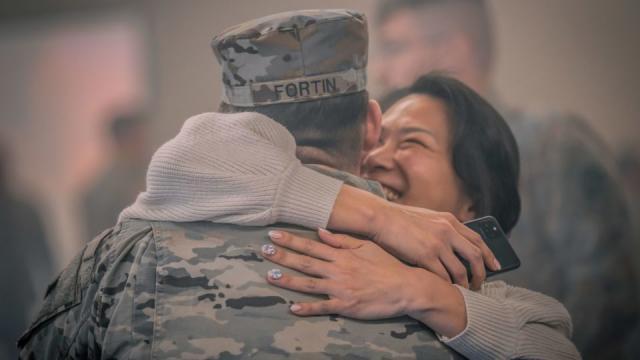
The US Army’s air defense units are among the most overworked in the US military, manning missile systems across the globe to provide around-the-clock deterrence against adversaries including North Korea, China, Iran and Russia.
In describing the problem to CNN, the Army’s most senior air defense officer, Lt. Gen. Dan Karbler, recounted something an Army sergeant told him recently: “Sir, it’s simple, pure math. We have more missions than we have air defense capability.”
“It could get out of whack in a hurry if it’s not managed properly,” Maj. Gen. Brian Gibson, commander of the 94th Army Air and Missile Defense Command in Hawaii, told CNN.
The situation became so severe that in 2020, the service conducted a survey of air defense soldiers and families, and have recently been working to implement changes to offload some of the pressure those soldiers and families are feeling.
“Right now, the Army has directed that we put behavioral health specialists in the formations,” said Karbler, who is commander of the Army’s Space and Missile Defense Command. “We have them there, and they will become a permanent part of those organizations.”
The Army’s air defense branch is among the most frequently deployed branches of the service, with almost 60% of its total force deployed at any one time. On average, air defense soldiers were found to have less than a year at home after a year-long deployment, when ideally they should have two to three years at home after a year away. The Army has since brought that up to two years at home for every one-year deployment – Defense Secretary Lloyd Austin’s “red line,” according to Karbler.
In describing the problem to CNN, one senior Army air defense officer, who spoke on condition of anonymity in order to speak freely, “We have been overworked and undermanned.”
Along with embedding mental health specialists, the Army is also working to stand up entirely new air defense units over the next few years.
Leaders are also increasingly focused on communicating with families early and often to help mitigate the unpredictable nature of the job, especially when the duration of deployments are extended out. One noncommissioned officer who deployed to the Eastern flank at the start of Russia’s invasion, Sgt. 1st Class Graham Kimmel, said he and his commander organized a newsletter for families, through which they shared photos of their deployed soldiers and information they could share so families felt up to date.
“We said they were going for six months, and now all of a sudden they got extended for nine months, or they’re going for nine months and got extended for 12 months, and in some cases got extended for longer than a year,” Karbler said of air defense forces. “That unpredictability really, really affected the soldiers and the families,” he added, “and was a significant contributor to stress on the force.”
In the Pacific, the strain is often felt by the sheer size of the region and the time and resources it takes to get from one place to another. In 2023 alone, US Army Pacific was expected to participate in 24 military exercises which are crucial to the US’ efforts in building relationships in the region, learning from one another, and strengthening partnerships in the chance that conflict does come to the Pacific.
Gibson explained that it can take a “massive amount of time” to get soldiers and equipment from place to place in the Pacific for exercises, and that there is “growing momentum” from partners in the region to “expand our scope and pace of exercises and operating together.”
“I don’t see, today, any reduction in what potential adversaries are doing in the theater,” Gibson said. “I think there’s a real chance that it only continues to increase from actions that predominantly China and North Korea conduct. But Russia also has parts to play pretty significantly in this theater, especially in the maritime and air domain.”
Brig. Gen. Maurice Barnett, commander of the 10th Army Air and Missile Defense Command in Europe, put it simply: “Unfortunately, business is good for air defense.”
Indeed, the need for a strong air defense has been on display for the world to see in Europe as Ukraine has worked to thwart attacks by the Russian military since last February.
And for the US soldiers tasked with providing defense of partners, as well as training Ukrainians to operate their own air defense systems, the stakes couldn’t be higher.
Retana said ultimately, the US trainers were “praying that what we did was sufficient” in teaching the Ukrainians how to operate the Patriot and sending them back to the front lines.
“At the very end, it was bittersweet – it was happy that the training was complete, and that [the Ukrainians] were successful,” Retana said. “But it was also a very worrisome and heavy burden to think they’re headed into the wolf’s den … to go fight.”
Being that close to the Ukrainians’ mission reaffirmed how critical air defense is to the Americans conducting the training, Retana said, and made the increased demands on them worth it.
“It motivates people because it gives us meaning … You’re willing to go through a lot more when you believe that what you’re doing is meaningful.”
The demand of that mission has resulted in a decrease in how many exercises the US is participating in with partners in Europe, Barnett said, taking the total number from 18 to 12 this year. He added that the Army has to “look at creative ways to meet the mission requirements” – because at the end of the day, the mission requirements aren’t slowing down.
“Our number one priority, of course, is taking care of our people,” Barnett said. “But that’s only supplemented by we have a mission to accomplish here. And I don’t think the American people, nor our European allies, will take no as an answer.”
Brexit revives historic herring fishing after 25-year hiatus
The Isle of Man’s historic herring industry is being revived after a quarter of a century thanks to a post-Brexit deal with the UK over fishing quotas.

The island’s fishermen were reduced to scratching a living catching scallops. By the start of the millennium, the herring quota was too small to be commercially viable.
The herring industry dates back to at least the 13th century on the island. At its height in the early 19th century, it had a fleet of 350 fishing vessels.
Cured herrings were exported to Britain, Ireland, Italy and the Mediterranean. In the 1820s, Scottish and Cornish fishermen set course for Manx waters to share in the bounty.
During the evacuation of Dunkirk in 1940, one in every 15 soldiers was evacuated on a boat registered in the Isle of Man.
Clare Barber, the Manx minister for the environment, said the new quotas amounted to a “once in a generation opportunity” to revive the island’s herring industry, which will be sustainably managed under the agreed quota system.
The number of herring in the Irish Sea has doubled since the 1990s, and the herring fishing season will only run from July to October.
Herring, known as skeddan in the Manx language, were once so important to the island’s diet and food security that Manx folklore tells of how skeddan became King of the Sea – something still celebrated in Manx folk music.
No clear loser after Prigozhin's mutiny, Ukrainian journalist believes
No one lost during the Wagner PMC mutiny led by Yevgeny Prigozhin, and the conflict between the two large power blocs around Russian dictator Vladimir Putin will continue, Ukrainian journalist and blogger Denis Kazanskyi said in an interview with Radio NV on June 30.
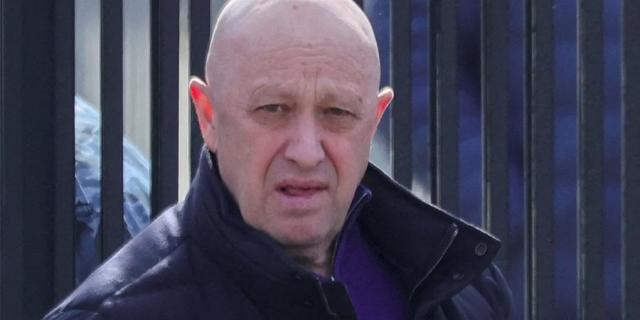
He pointed out that Prigozhin is still at large after the mutiny, despite having killed a number of Russian servicemen, including highly-trained helicopter pilots.
"Yesterday it was reported that he was walking freely in St. Petersburg," Kazanskyi said.
The journalist stated that it is unclear what the Wagner PMC leader will do next.
"In fact, there was an attempted coup, two large groups that are in Putin's entourage clashed, and no one lost," Kazanskyi believes.
“That is, the status quo has actually returned. Both the former and the latter remained at large, and no one was killed or imprisoned. There will probably be a continuation. It cannot just end in nothing.”
Prigozhin announced the beginning of an armed conflict with the Russian Defense Ministry on the evening of June 23, claiming that he wanted to “restore justice” in Russia.
He said that the Russian army struck the mercenaries’ “rear camp.” However, the conflict between Prigozhin and Shoigu had started months earlier.
For the past few months, the Wagner leader has been persistently demanding the resignation of the Russian defense minister, accusing him of poor management of the Russian armed forces and of not supplying enough ammunition to Wagner forces.
The next day, Wagner forces seized control over the main military facilities in the cities of Rostov-on-Don and Voronezh. They also shot down seven Russian Air Force aircraft.
Prigozhin then demanded meetings with Russia’s top military leadership and threatened to “advance towards Moscow” in a video address shot in Rostov-on-Don.
Putin, in turn, posted a video address saying that the Russian Armed Forces had ordered to eliminate those who led the “rebellion”.
The FSB charged Prigozhin with “inciting insurrection,” while security forces prepared to defend Moscow. Putin is believed to have fled the capital to his residence in Valdai, northwest of Moscow.
Belarusian dictator Alexander Lukashenko held talks with Prigozhin as his mercenaries closed in on Moscow, Lukashenko’s press office stated, culminating in a deal where Prigozhin agreed to halt his forces’ advance on the Russian capital – in exchange for dropping charges and changes at the Russian Ministry of Defense.
Soon after, Prigozhin ordered Wagner mercenaries to turn back from Moscow and return to their combat positions.
On June 29, the Russian news outlet Fontanka reported that Prigozhin may be in St. Petersburg, claiming that a person resembling the Wagner leader was seen wearing a medical mask at the helipad on the English Embankment in St. Petersburg. This person then flew away in a helicopter belonging to a company associated with Prigozhin.
Wagner Uprising Highlights China’s Risks With Russia
Just three months ago, China’s top leader, Xi Jinping, was in Moscow clinking glasses with Vladimir Putin and expressing his confidence in the “firm support” the Russian president enjoyed among his people. That confidence is now in question, after the Wagner private military group waged an insurrection in Russia that has shaken Putin’s image of invulnerability. Close watchers of China say that the mutiny, short-lived as it was, could lead Xi to hedge a close relationship with Russia that had exp
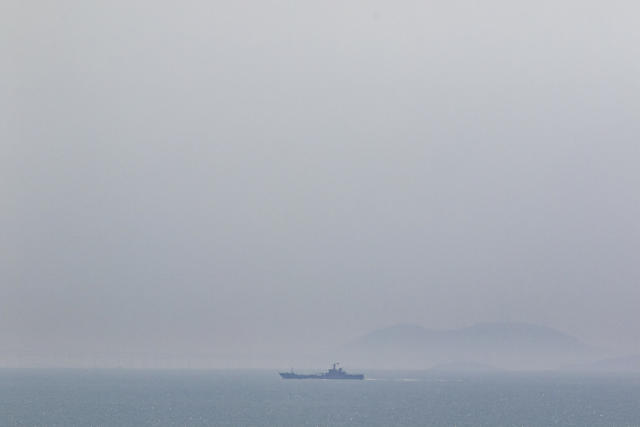
Just three months ago, China’s top leader, Xi Jinping, was in Moscow clinking glasses with Vladimir Putin and expressing his confidence in the “firm support” the Russian president enjoyed among his people.
That confidence is now in question, after the Wagner private military group waged an insurrection in Russia that has shaken Putin’s image of invulnerability. Close watchers of China say that the mutiny, short-lived as it was, could lead Xi to hedge a close relationship with Russia that had exposed Beijing to global criticism and threatened some of its interests abroad.
China views Russia as a necessary partner in challenging the global order dominated by the United States. But Putin’s appetite for risk — seen in his invasion of Ukraine and his reliance on private armies — has forced Beijing to defend its bond with Russia in the face of Western pressure.
Xi’s long-term bet will work only if Putin remains in control to help uphold the shared interests of both countries. But the revolt has raised questions about Putin’s authority: Wagner soldiers faced little to no resistance from regular Russian forces as they advanced on Moscow. And Putin’s decision to grant sanctuary in Belarus to Yevgeny Prigozhin, leader of the uprising, smacked of a compromise rather than the act of a strongman with consolidated power.
“It makes China realize that the Putin government’s internal politics are actually quite fragile,” said Xiao Bin, a researcher for the Institute of Russian, East European and Central Asian Studies at the Chinese Academy of Social Sciences. “The fragility existed before, but it has increased ever since the start of the Russia-Ukraine war.”
China has publicly reaffirmed its support for the Kremlin following the insurrection, and analysts say the relationship is likely to remain strong, at least on the outside, because of how the two leaders’ interests align.
But the mutiny has probably also forced Beijing to consider how its own geopolitical, economic and territorial interests would be affected if Putin were to suddenly be toppled. That could lead China to distance itself from Russia to some degree.
In the 23 years Putin has been in power, Russia’s relations with China have improved markedly from the Soviet era and the days of President Boris Yeltsin, when the two sides sent dozens of military divisions to face off against each other along the 2,600-mile border they share.
Any regime change in Russia now would prompt an instant reckoning for the relationship. China would be concerned that a new Russian leader would realign the nation toward a friendlier posture with the United States, Xiao said. That could leave China isolated in its rivalry with the United States and expose it to more pressure.
More extremely, a souring relationship between Beijing and Moscow could require China to again redeploy troops at the border with Russia, at the expense of other areas, said John Culver, a former U.S. intelligence analyst on China.
“Downsizing the number of troops along the border has allowed China to prepare for the greater potential for conflict over Taiwan or the South China Sea or with India,” Culver said. “I don’t think enough has happened to make them rethink that, but for the first time they have grounds to wonder if maybe they have to.”
Any instability in Russia would also be a warning to China about the urgency of protecting the country’s supply of Russian energy imports.
At the same time, a weaker Putin could be an opportunity for China to make some gains, said Wen-Ti Sung, a political scientist at Australian National University.
Beijing may consider accelerating efforts to extract more concessions from Russia. At the top of China’s list could be access to more Russian technology and more favorable terms for the proposed Power of Siberia 2 gas pipeline, which would help redirect Russian gas supplies that historically have gone to Europe toward China instead.
The questions about Putin’s political future highlight how differently he and Xi have approached their common goal of weakening U.S. global power and reshaping the global order to better protect their countries’ interests.
Putin has been far more aggressive, launching the biggest war in Europe since World War II. Xi has in recent years certainly taken a more bristling territorial stance, particularly with Taiwan, the self-ruling island democracy that Beijing claims, using economic sanctions and military drills to keep the island on edge. But he has so far been cautious to avoid tipping the standoff into a war that could draw in the United States and its allies.
Xi has also been focused on consolidating power at home. Starting in 2015, the Chinese leader began a major overhaul of the People’s Liberation Army to strengthen his grip over the military by ousting commanders deemed disloyal or corrupt and elevating his allies, in many ways to avoid the questions of loyalty Putin faces today.
Some see the Wagner rebellion as the latest sign that China’s relationship with Russia is increasingly similar to its relationship with North Korea, a country that is notoriously erratic, and that exploits its volatile behavior to try to press China for more support in exchange for backing down.
Since Russia invaded Ukraine, its trade with China has hit record highs. Beijing has also ensured that Moscow isn’t diplomatically isolated.
“Russia’s main incentive is to drive up the price of its friendship to get more out of its dealings with China,” Sung said. “Russia can do this when it appears reckless and unpredictable, not unlike North Korea.”
China has paid a considerable price for its support for Russia. The war has worsened China’s fraught relations with the United States and undermined its bid to improve ties with Europe. The fighting in Ukraine has also drawn more global attention toward China’s aggressive stance on Taiwan.
China has navigated these drawbacks carefully at home. Chinese state media has downplayed the significance of what it called the “Wagner incident” and praised Putin for defusing the crisis. The Global Times, a Chinese Communist Party tabloid, accused Western media of “hyping” the rebellion to misrepresent China’s ties to Russia. There appeared to be no attention paid to Prigozhin’s claim that the Russian public was deceived into believing that NATO was responsible for the war.
“The Chinese government still believes in Putin’s control over Russia, and also believes in the long-term stability of Russian society,” said Wang Wen, executive dean of the Chongyang Institute for Financial Studies at Renmin University in Beijing, who follows developments in Russia and visited the country after its invasion of Ukraine.
“It would be strategic misjudgment to think that the Wagner incident could divide China and Russia.”
Despite mainstream support for Russia, other notable Chinese experts have argued that the war has harmed China’s position in the world, including Yan Xuetong, a senior international relations scholar at China’s prestigious Tsinghua University.
Speaking to reporters last month in Beijing, Yan noted that the United States had yet to send troops to defend Ukraine, but by comparison, European members of NATO had increased their presence in the Asia Pacific region.
“From a security perspective, this war has not enhanced China’s security but has subjected China to more security threats,” Yan said, according to a translation by the Pekingnology newsletter.
c.2023 The New York Times Company
0 Likes
